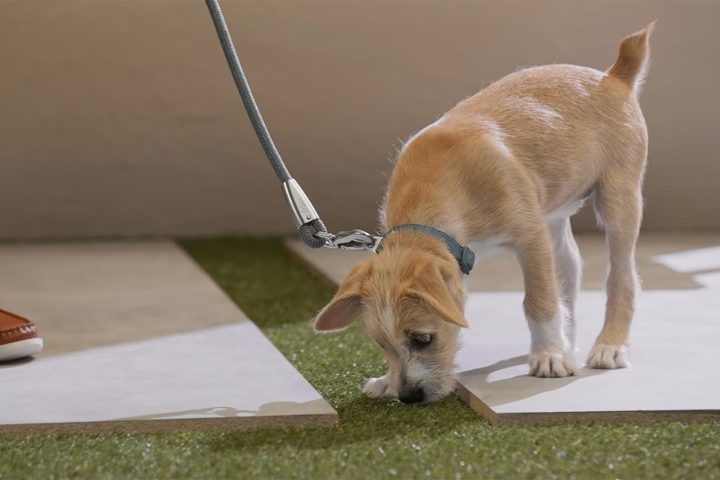Embarking on the journey of potty training a new puppy signifies a major initial hurdle for any pet parent. This crucial task demands a blend of patience, unwavering consistency, and a generous sprinkling of positive reinforcement throughout the training process.
By applying these key principles diligently, new pet owners can guide their furry companions through this essential learning phase with relative ease.
Here is a compilation of actionable tips to aid you in successfully navigating the terrain of potty training your adorable puppy.
1. Start Early and Be Consistent
The earlier you start potty training, the better. Puppies are creatures of habit, and the quicker they learn where they’re supposed to go, the easier the process will be.
Consistency is key. Choose a specific spot outdoors where you want your puppy to relieve themselves and take them to that spot every time. Use the same door to exit, which helps them associate that door with going outside.
2. Establish a Routine
Puppies thrive on routine, and establishing a regular schedule for feeding, playing, and potty breaks will help them learn faster. Take your puppy outside first thing in the morning, after every meal, after naps, and before bedtime.
Young puppies generally need to relieve themselves every hour or so, and after each significant activity. As your puppy grows, you can gradually extend the time between potty breaks.
3. Use Positive Reinforcement
When your puppy successfully goes potty outside, reward them immediately. This could be with praise, a treat, or playtime.
The key is to associate the positive behavior with a reward so your puppy understands that going outside is a good thing. Never punish your puppy for accidents. Punishment can create fear and anxiety, making the training process more difficult.
4. Crate Training
Crate training can be a very effective tool for potty training. Dogs naturally avoid soiling their sleeping area, so a properly sized crate can help teach your puppy to hold it until they are taken outside.
The crate should be large enough for the puppy to stand up, turn around, and lie down, but not so large that they can relieve themselves in one corner and sleep in another. Remember, the crate should be a safe and comfortable place, not a form of punishment.
5. Supervise and Limit Freedom
Until your puppy is fully potty trained, it’s important to supervise them closely. If you can’t watch them, confine them to a small, puppy-proofed area where accidents are easier to clean up.
Limiting your puppy’s freedom in the house can prevent accidents and make it easier to recognize the signs that they need to go out. Common signs include sniffing, circling, whining, or pacing.
6. Recognize the Signs
Understanding the signals your puppy gives when they need to go can help prevent accidents.
As mentioned earlier, common signs include sniffing the ground, circling, or suddenly stopping play to focus on something else. If you notice any of these behaviors, take your puppy outside immediately.
7. Stay Patient and Be Prepared for Setbacks
Potty training doesn’t happen overnight. It’s normal for puppies to have accidents, especially during the early stages.
If your puppy has an accident indoors, clean it up immediately with an enzymatic cleaner to remove the scent, which could encourage future accidents. Avoid scolding your puppy, as it can make them anxious and slow down the training process.
8. Use Command Words
Teaching your puppy a command word or phrase, like “go potty,” can be helpful. Use the command just before your puppy is about to relieve themselves, and over time, they will associate the command with the action.
This can be particularly useful in the future when you need your dog to go quickly or in specific situations.
9. Gradually Increase Independence
As your puppy becomes more reliable, you can start giving them more freedom in the house. However, continue to supervise closely and take them outside regularly.
Gradually, your puppy will learn to hold it until they are taken outside, and accidents will become less frequent.
10. Seek Professional Help if Needed
If you’re struggling with potty training despite your best efforts, don’t hesitate to seek help from a professional dog trainer or behaviorist.
They can provide personalized advice and techniques tailored to your puppy’s specific needs.
Potty training a puppy requires time, patience, and persistence, but with these tips, you can set your puppy up for success and enjoy a cleaner, happier home.





GIPHY App Key not set. Please check settings